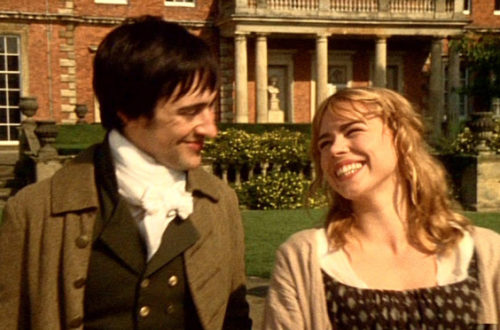Let’s suppose you turned to this page just in passing, without really intending to read more than a sentence or two. And suppose you saw that I offered you a choice: In order to entice you to read this article, I’ve concocted three introductions. Which one of the three would entice you to read the rest? Choose one:
a businesslike paragraph that lists the five essential points of the article.
a brilliant psychoanalysis in one paragraph of the subject– why people read fiction.
my favorite joke in the whole world.
Which did you pick? The joke, of course. Nobody ever refuses to hear a new joke. Because it’s a story, and we all love stories. The joke has a couple of bonuses, too. It’s usually short and it usually ends with a laugh, which is not a bad way for a story to end.
If I got you this far because you want to hear my favorite joke, good. In a way, it was a promise, and I intend to keep it. But later. See, it illustrates a point, but you’ll have to wait til it becomes appropriate. That, by the way, is called suspense, and it’s a very important element in fiction. But more of that in a moment.
My subject today is why we read fiction. And I can give you an answer to the question in two words. In fact, I made those two words the title: Story Hunger.
You never heard of story hunger, right? There are all kinds of hungers — physical, sexual, all kinds, but you never heard of story hunger. Well, to tell the truth, I made up the term, but the phenomenon does exist. I can prove it.
The manifestation of story hunger are clear early. Every child demands, “Tell me a story!” When you’re little you never get enough. You’re even willing to listen to the same story over and over. In adults, the hunger is also manifest. Television and movies provide huge doses daily to satisfy the never-ending demand.
There is some feeling that men’s story hunger is weaker than women’s, but I don’t think that’s true. It’s just different. Women, I think, are more satisfied by love stories and stories of internal, psychological subjects, while men like adventure and physical action. There’s a New Yorker cartoon I particularly enjoyed that’s relevant:
A beer guzzling man comes looking for his wife and finds her glued to the TV set.
” Who’s ahead?” he asks.
She gives him a dirty look. “It’s a love story,” she says. “Nobody’s ahead.”
(This is not the joke mentioned above. Still coming.)
Of all the methods of appeasing story hunger movies, theater, tv, and books — I believe books are best: The other ways lead to satiation. Why? Because the viewer’s participation is passive not active. Sensations are thrown at you, just the way the director sees them. You contribute less because you are receiving the sensations easily, passively. Passive is not as satisfying as active. Reading, on the other hand, is active. You are there, interpreting, making your own pictures of the author’s words.
Reading is a pastime which differs from some of the most pleasant vices and pastimes because it consolidates and intensifies the organs which it exercises rather than bloating them, wearing them out, aging them or weakening them.
Of course, books are not always satisfying either. It’s harder to find the right books than the right movie or tv show. Fifty thousand books are published each year! That makes the search for the books to satisfy our particular taste extremely difficult. There’s a bigger investment in time, money and effort involved in searching out the right books. So we tend to stick to those genres and writers that have satisfied us before. We don’t experiment enough. Or we reject books that seem beneath us intellectually. (Romances suffer from this sort of snobbism.) Or, the opposite of snobbism, anti-intellectualism. We reject books that we believe (without trying) that the book might be too serious or difficult. Oscar Wilde once wrote:
The difference between journalism and literature is that journalism is unreadable and literature is unread.
We’re afraid of “teacher’s recommendations” in books. We don’t want reading to be like homework. Another New Yorker cartoon:
The New Haven Commuter Railroad is stalled. The Conductor takes a seat in front of the railroad car and begins reading WAR AND PEACE. One passenger turns to the man next to him and says, ” We must really be stalled this time.”
The process of reading is a complex one. One of the difficulties is that the writer and reader come at the material from opposite directions. I think it was Pascal who wrote:
The reason why a writer’s form of expression may seem quite clear to him yet obscure to the reader is that the reader is advancing from language to thought, while the writer is advancing from thought to language.
It’s an interesting concept. And often, when the reader has difficulty following the writer’s point, it’s the writer’s fault. He forgets where the reader is coming from.
Nevertheless, reading fiction is the very best method for satisfying story hunger. Stomach hunger is satisfied best if you eat nutritionally sound food that also tastes so good it gives you pleasure. It’s a good analogy for reading fiction, too. Story hunger isn’t completely satisfied by the plot. Imaginative writing — fiction — tries to convey experience rather than knowledge. Fiction appeals to the imagination more fundamentally than to reason. To fully satisfy story hunger, we want to be moved, stimulated, enlarged. We want to feel — to use the food imagery — nourished.
Now, at last, I’m going to tell you my favorite joke in the whole world. It is a morsel to satisfy story-hunger because:
it keeps your attention…plot
it has an interesting (familiar, but hidden motives) character
it has meaning…in this case a social comment:
It forces your mind to make a little leap at the end.
The act of the leap will make you laugh. And you’ll be pleased at having made it. When you think about it later, you’ll see that it manages to do all the things in that list, but first listen to it just for the story:
A little, elderly lady sat in the day-room of the retirement home, weeping over a picture in the newspaper of a famous guru sitting atop a Himalayan mountain surrounded by a large group of turbaned followers. “Oh, my guru, my guru,” she wept. “I must go to see my guru or my heart will break.”
Everyone felt sorry for her. Though they didn’t understand her affinity for this distant religious advisor, they wanted to help her. They took up a collection and bought her a ticket to India. She set off at once. It was a difficult journey, requiring a long plane trip, followed by a train ride to the Tibetan border, and then a rickety bus to the bottom of the mountain. There, she was lifted on to the back of an ass who carried her up to the top. As they approached the summit, she saw a long line of believers waiting for an audience with the famous guru. Thoroughly exhausted by this time, she did not get on the end of the line but went up to the front, where a yellow- robed guard was admitting the visitors one at a time. “I have to see my guru,” she said to the guard.
“Madam,” said the guard coldly, “do you see that line of people? You must go to the end and wait your turn.”
“But you don’t understand,” the old woman cried. “I am eighty-two years old. I’ve come by plane and train and bus and donkey. My knees are weak and I might very well faint. You must let me in.”
“Sorry,” the guard said. “Rules are rules.”
“But I only want to say three words to him,” the old woman explained.
The guard snorted. “Three words? Nobody ever says only three words to the guru.”
“I swear,” the woman insisted, “that I will say only three words.”
“Ridiculous. You’ve come all this way to say three words?”
“On the grave of my father, I swear,” she declared. “Only three words.”
The guard shrugged. “Very well, if it’s only three words, I will let you in.”
He stepped aside and let her pass. As she went by, he warned, “I have your sworn oath! Only three words!”
“Three,” she muttered. “I swear it.”
She approached where the guru sat, his legs folded under him and his arms crossed over his chest. As she sat down before him, the guard shouted, “Remember, three words only!”
She nodded and leaned forward, face to face with the guru. “Sheldon,” she said, “come home!”
— — E. Mansfield


